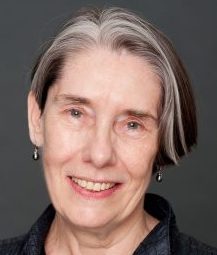
Media
Alison Wylie, UBC - Objectivity
In this video Wylie discusses this history of contention about “objectivity” and makes a case for stepping back from wrangling about abstractions. Rather than invoke an unspecified and unattainable ideal, better to think systematically about what we want from the beliefs and claims we valorize as “knowledge,” from those who produce and transmit them, and from our collective practices of producing and appraising knowledge. When we focus on these questions it is clear that all knowledge is situated and that what we need, what we rely on in making decisions and acting in the world, is knowledge that’s “fit for purpose.”
Sci Phi PodcastRadio/Podcast
URL: http://www.sciphipod.com/podcast/2018/4/22/episode-38-alison-wylie
Philosophy department to tackle its gender imbalance, following external review
Biography
Alison Wylie is a Canada Research Chair in Philosophy of the Social and Historical Sciences at UBC. She is an authority on how researchers establish credible knowledge claims in fields like archaeology that grapple with sparse and uncertain evidence. She writes on feminist standpoint theory, and has worked on equity issues in academia since the 1980s when, as a member of an activist research at Western University, she helped document “chilly climate” issues for women faculty, staff, and students, and co-edited Breaking Anonymity. Wylie co-convened the drafting committee that developed ethics principles for the Society for American Archaeology and has since been a strong advocate for community-based collaborative research partnerships with Indigenous communities.
Additional Titles and Affiliations
UBC Science and Technology Studies
STS program core faculty
UBC Department of Anthropology
Associate Member
